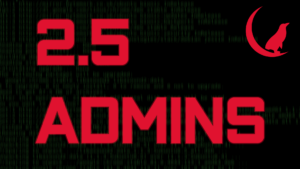
 2.5 Admins
2.5 Admins 2.5 Admins 234: ChiaFraud
Feb 13, 2025
Dive into the world of tech fraud as used Seagate drives are passed off as new, raising serious market trust issues. Explore the pitfalls of installing Windows 11 on unsupported devices while discovering alternative options. Learn about ZFS backup solutions for block storage and the importance of data integrity in a cloud environment. Plus, uncover critical tips for selecting the right hardware to optimize virtual machines, balancing performance needs with innovative container management techniques.
AI Snips
Chapters
Transcript
Episode notes
Chia Farm Fraud
- Seagate drives used in Chia farms were fraudulently resold as new after the crypto craze subsided.
- Resellers hacked firmware to reset usage data, impacting drive reliability.
Verify Drives
- Verify new Seagate drives with their warranty checker to ensure they aren't used.
- Report suspicious drives and sellers to Seagate's fraud email or ethics hotline.
Windows 11 Hacks
- Avoid hacking Windows 11 onto unsupported hardware, especially for others.
- Microsoft strongly discourages this and issues may arise.

